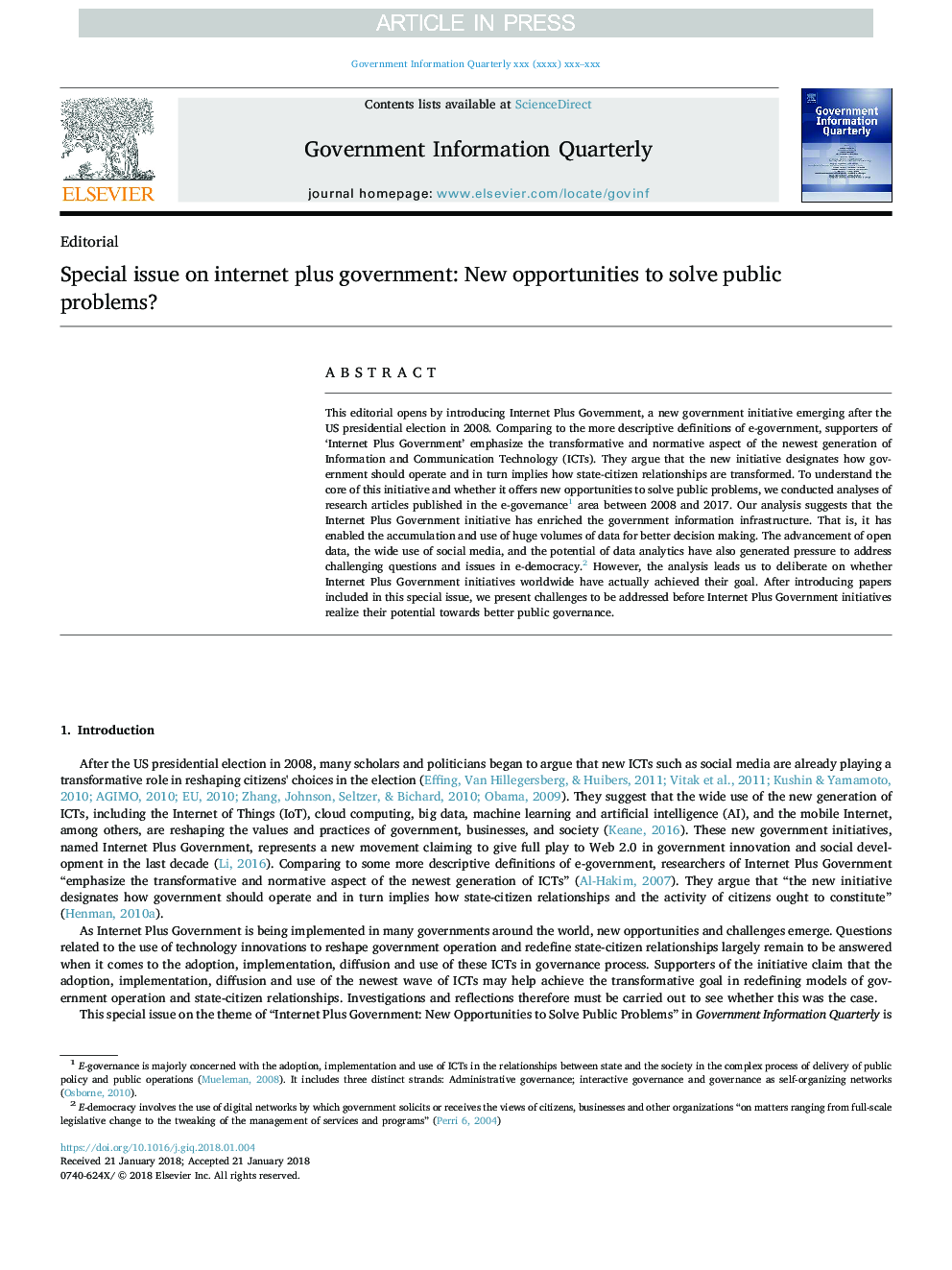| Article ID | Journal | Published Year | Pages | File Type |
|---|---|---|---|---|
| 7428559 | Government Information Quarterly | 2018 | 10 Pages |
Abstract
This editorial opens by introducing Internet Plus Government, a new government initiative emerging after the US presidential election in 2008. Comparing to the more descriptive definitions of e-government, supporters of 'Internet Plus Government' emphasize the transformative and normative aspect of the newest generation of Information and Communication Technology (ICTs). They argue that the new initiative designates how government should operate and in turn implies how state-citizen relationships are transformed. To understand the core of this initiative and whether it offers new opportunities to solve public problems, we conducted analyses of research articles published in the e-governance1 area between 2008 and 2017. Our analysis suggests that the Internet Plus Government initiative has enriched the government information infrastructure. That is, it has enabled the accumulation and use of huge volumes of data for better decision making. The advancement of open data, the wide use of social media, and the potential of data analytics have also generated pressure to address challenging questions and issues in e-democracy.2 However, the analysis leads us to deliberate on whether Internet Plus Government initiatives worldwide have actually achieved their goal. After introducing papers included in this special issue, we present challenges to be addressed before Internet Plus Government initiatives realize their potential towards better public governance.
Related Topics
Social Sciences and Humanities
Business, Management and Accounting
Business, Management and Accounting (General)
Authors
Shuhua Monica Liu, Yushim Kim,
